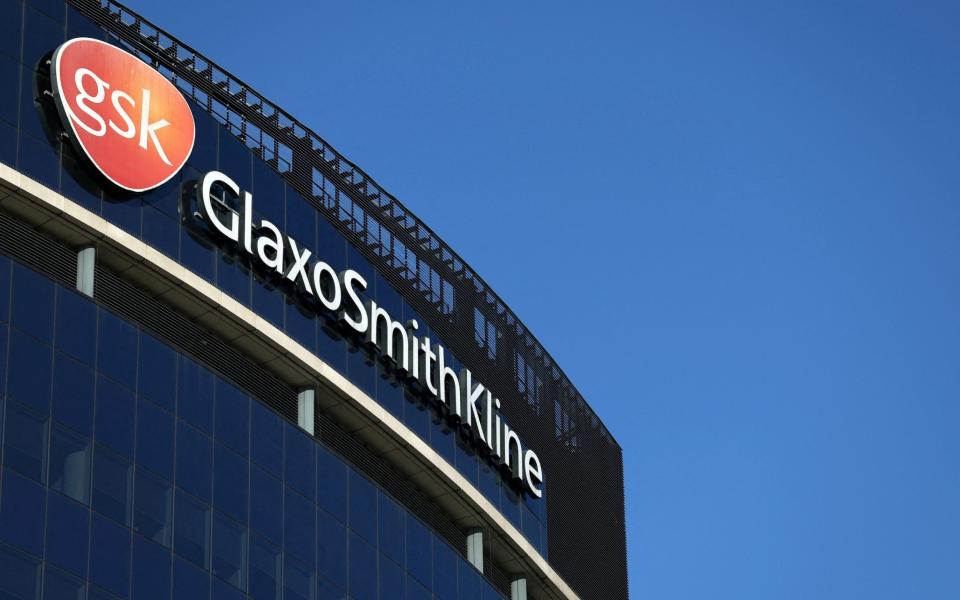GSK is performing well despite the legal clouds that hang over it

Strong full-year numbers last week, a planned dividend rise in 2024 and upgraded medium-term growth and profit forecasts all support our confidence in GSK, where a blossoming drugs pipeline gives additional visibility and increases the chances of some reward for readers in the form of both capital appreciation and income.
A fourth dismissal or settlement of lawsuits relating to the heartburn treatment Zantac is also encouraging.
While the legal cloud regarding the drug and its allegedly carcinogenic side-effects is far from fully lifted, the market’s worst fears regarding possible liabilities are yet to be borne out and the shares still trade some 9pc below highs reached almost two years ago.
GSK still faces a lengthy list of cases, but the more that are settled, the greater the chance that investors can again focus on the day-to-day business, which is performing well.
The launch of the respiratory syncytial virus vaccine Arexvy is going well, judging by 2023’s sales tally of £1.2bn, which is already 4pc of the group total.
That nicely supplements the £3.4bn revenues from shingles vaccine Shingrix and helps the company to get over its embarrassing failure to match Pfizer, Moderna and AstraZeneca in the race to find a Covid vaccine.
GSK now has 71 vaccines and speciality medicines in its drug development pipeline, including 18 at the Phase III stage, and is hoping for a dozen to come to market from 2025 onwards in areas such as HIV, oncology and respiratory conditions.

This roadmap presumably underpins the upgrade to medium-term sales and profits growth targets offered by chief executive Dame Emma Walmsley alongside the full-year figures.
GSK now expects compound annual growth rates of 7pc in revenues and 11pc in earnings between 2021 and 2026. Such a rate of progress would suggest that a multiple of barely 12 times forecast earnings looks decent value, especially when it is supported by a yield of 3.6pc, based on management’s guidance for a 60p-a-share dividend in 2024.
GSK still looks like good value. Hold.
Questor says: hold
Ticker: GSK
Share price at close: £16.63
Updates: Close Brothers, S&U, Lloyds Banking Group
So much for that plan then, and all we can do is apologise.
Our view, expressed a year ago, that the merchant bank Close Brothers was unduly cheap has not stopped the shares from getting cheaper – much cheaper, in fact.
They have collapsed, owing to fears that the FTSE 250 bank may be a name in the frame as the Financial Conduct Authority investigates “discretionary commission arrangements” in the car financing market.
Under these arrangements some lenders allowed brokers and loan arrangers to adjust the interest rate offered to customers for car finance. The higher the rate, the more commission the broker earned.
The FCA banned the practice in 2021 but has received complaints from consumers who feel they were overcharged before then.
It has begun to investigate the period 2007-21 to see if finance providers acted unfairly and customers did indeed lose out. Finance providers vigorously deny any wrongdoing.
Even so, consumer champion Martin Lewis has said this could be the next payment protection insurance (PPI) scandal and investors will remember how that cost the banks the thick end of £50bn.
While any bill for discretionary commission arrangements is unlikely to be that big, one broker has suggested a possible compensation cost for overpayments of £13bn.
Our previous tips include several names that provide motor finance, such as Close Brothers, S&U and Lloyds Banking Group.
We now face a tricky decision, as second-guessing the outcome of the investigation is impossible (as per this column’s mantra of “never bet upon stewards’ inquiries, for the stewards know not what they do”).
The damage is already done with Close Brothers’ shares, and it appears to have sufficient regulatory capital and a sufficiently lowly valuation relative to book value, so we shall tough it out.
S&U, covered here in 2019, is a well run business but we will bank our diminished profit (boosted by very healthy dividends) in the view that we can return to it another time.
Lloyds, which we wrote about in May 2022, has a double-digit percentage share of Britain’s motor financing market and PPI is an unfortunate precedent.
The bank is well capitalised but it trades at 0.9 times historic book value and we fear par value could be a cap until this regulatory cloud lifts. So we shall – reluctantly – walk away for now and seek better opportunities elsewhere.
We’ll sell S&U and Lloyds but hold on to Close Brothers.
Questor says: hold Close Brothers, sell S&U and Lloyds
Tickers: CBG, SUS, LLOY
Share prices at close: 502p, £20.10, 41.89p
Russ Mould is investment director at AJ Bell, the stockbroker
Read the latest Questor column on telegraph.co.uk every Monday, Tuesday, Wednesday, Thursday and Friday from 6am
Read Questor’s rules of investment before you follow our tips

